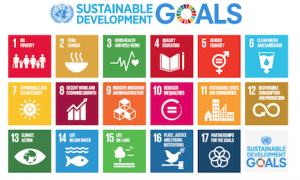China, UN discuss Sustainable Development Goals

Leaders of China and the United Nations have exchanged ideas on the Sustainable Development Goals (SDGs) in efforts to address unbalanced global development and promote inclusive economic growth.
Chinese Premier Li Kequang, who chaired the discussions, held at the 71st Session of the UN General Assembly, in September, said specific attention was placed on the SDGs at this year’s G20 Summit, held in China.
These were contained in a statement dubbed: “China’s perspective on the sustainable development goals as a universal push to transform our world”, and copied to the Ghana News Agency by the United Nations Economic Scientific and Cultural Organisation (UNESCO).
Premier Li stated that China had adopted a National Plan to implement the SDGs with ambitious targets to lift 57 million people from poverty by 2020 and improve standards in health, education and housing.
The report said during the event, the UN Secretary General, the President of the General Assembly, several UN principals, the World Bank President, and the Head of the International Monetary Fund, took the floor to underscore China’s key role in driving progress on the SDGs.
Premier Li underlined China’s commitment to work with the United Nations to implement the agenda, and announced his country’s increased financial contribution to the UN, to the Global Fund to Fight HIV/AIDS, Tuberculosis and Malaria, and to the South-South Cooperation Fund.
Touching on the ratification of the Paris Agreement on Climate Change, he assured that China would reach out more to international organisations and support the UN in playing its role.
“This roundtable could not come at a better time, one year after the adoption of the 2030 Agenda for Sustainable Development and during China’s G20 Chairmanship,” said Irina Bokova, UNESCO’s Director General.
She cited President Xi’s words to the G20 Hangzhou Summit, where he stated that: “Development is for the people, it should be pursued by the people and its outcomes shared by the people,” and praised China for its leadership in sharing expertise widely and investing in education, culture and science for inclusive peace and prosperity.
She said China recognised the power of culture and cultural heritage for dialogue and development through the sharing of its experience in Education, Science and Culture; and supporting South-South cooperation in engineering,”
She cited the historic scale of China’s links to UNESCO, with 48 World Heritage properties, 38 inscriptions on the Intangible Cultural Heritage List, 33 Biosphere Reserves, 18 UNESCO Chairs, eight creative cities and important development cooperation programmes that were benefitting least developed countries.
“This is how I believe the agenda will work for the people,” she said. “It reflects the strong political will of China and the soft power the world needs more than ever today,” Madam Bokova stated.
UN Secretary General Ban Ki-moon commended China for being among the first countries to align their national policies with the 2030 Agenda.
He said China’s ratification of the Paris Climate Change Agreement carried “huge impact” and expressed confidence that the Agreement would enter into force by the end of the year.
Peter Thompson, President, UN General Assembly, recalled that his country, Fiji, was the first to ratify the Paris Agreement and commended China for its decision, as well as the Green Finance Action Plan agreed upon in Hangzhou.
He called on the international community to create more awareness of the Global Goals by including them in schools curriculum.
Source: GNA
